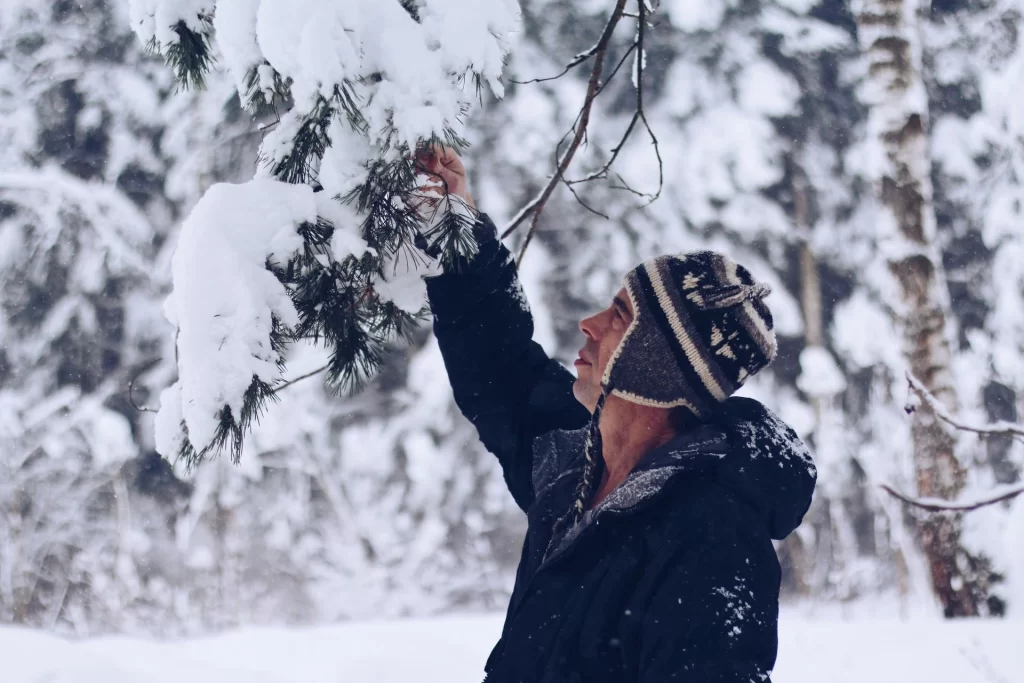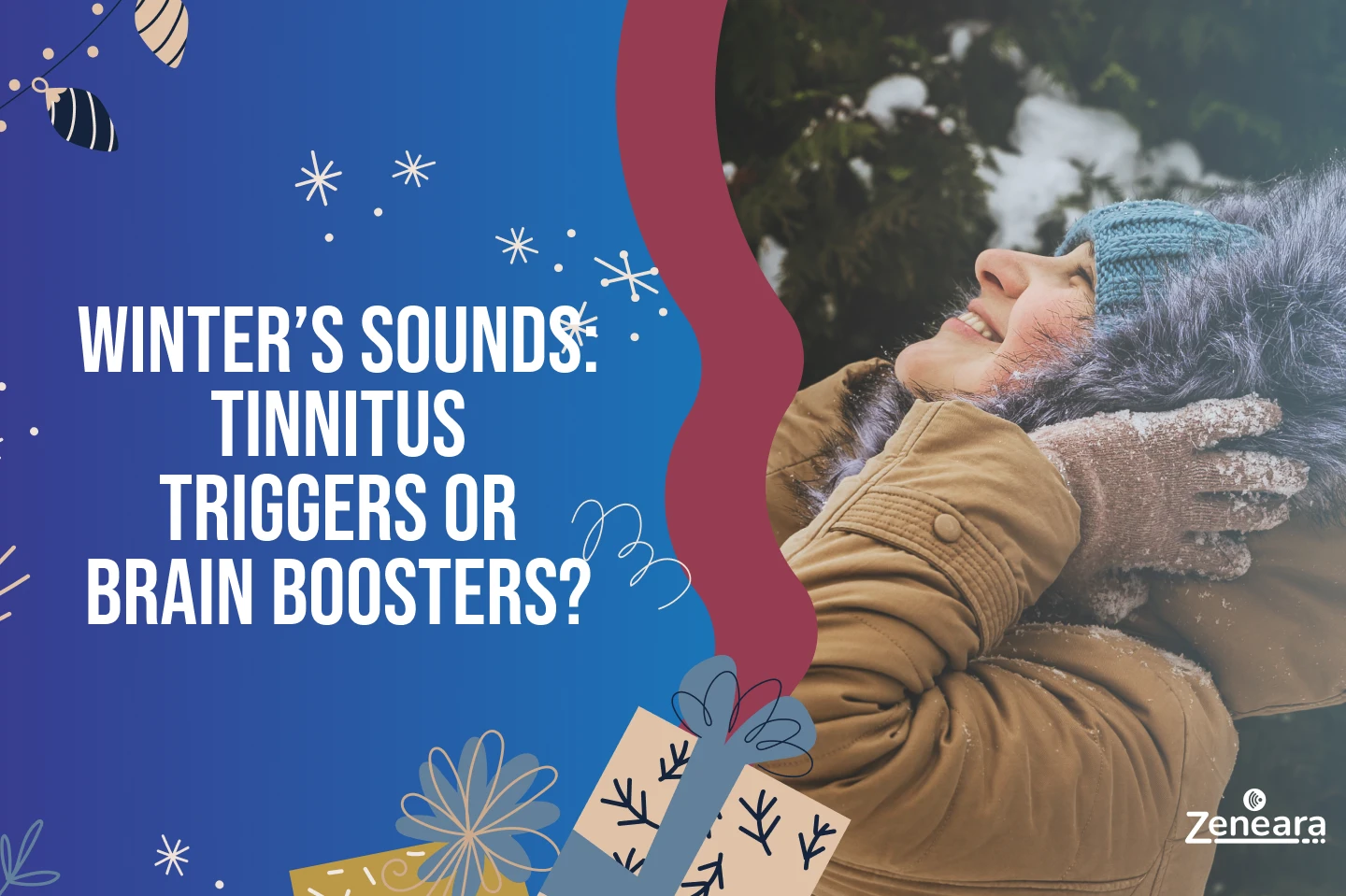Today, I spent the whole day soaked in the sounds of winter.
It started with the soft crunch of snow under my boots as I walked through a quiet trail and the gentle rustle of bare tree branches swaying overhead.
Later, the day got louder as my friends and I took a snowmobile out. Its engine roared as it sliced through the snow, echoing across the wide-open expanse.
By evening, I was swept into the magic of a Christmas market.
The air was alive with the tinkling of bells from festive stalls, the cheerful buzz of voices, and the occasional hiss of steam rising from cups of hot mulled cider.
Somewhere in the distance, carolers sang a soft, familiar tune, their voices blending with the scrape of skates on a nearby ice rink.
And as I soaked it all in, I can’t help but ask:
What’s your favorite winter sound?
Share your experience by replying to me. I’d love to know what makes this season sound magical for you.
I’m sharing this because the sounds around us matter. They influence our ears and our minds, stress levels, and focus.
Let’s explore how to turn winter sounds into better health and well-being tools.
How Winter Sounds Affect Us

Winter’s sounds shape how we feel, think, and even how our bodies respond—sometimes without realizing it.
For those with tinnitus, certain sounds can either soothe or irritate.
For others, winter’s auditory landscape can surprisingly affect brain health.
Let’s start with tinnitus.
If you’ve ever dealt with that persistent ringing or buzzing in your ears, you know how the wrong environment can make it unbearable. Loud noises—like the roar of a snowblower or the high-pitched buzz of a snowmobile engine—can be harsh triggers.
Even the festive chaos of a crowded Christmas market might leave you longing for silence. But winter also offers relief: the soft hush of falling snow or the steady crackle of a fireplace can mask tinnitus, giving your ears a much-needed break.
And it’s not just about the ears.
Your brain plays a huge role here.
Stress is one of the biggest culprits behind both tinnitus flare-ups and general mental fatigue. Ever notice how a noisy environment can leave you feeling frazzled, even if you’re not doing much?
Winter sounds, like the rhythmic drip of melting icicles or the gentle whisper of wind, can help calm your mind, lower stress, and keep your brain sharp.
Finding the Balance
The key is learning to embrace winter’s soothing sounds while protecting yourself from the harsh ones.
Take that snowblower, for example. It’s a necessary evil, but you don’t have to let it wreak havoc on your ears.
Slip on some earmuffs before you tackle the driveway, and you’ll save your hearing and keep that stress-induced tinnitus flare-up at bay.
On the flip side, make time for the quieter moments.
Next time you’re outside after a snowfall, stop and listen. It’s almost as if the world presses pause. That silence isn’t just peaceful, it’s therapeutic.
Your brain loves these calm moments. They’re like a mental reset button, perfect for lowering cortisol and clearing your thoughts.
Winter Sounds for Better Brain Health
Speaking of your brain, did you know that certain winter sounds can actually enhance your focus and mood?
Think about the crackling of a fire. It’s mesmerizing, right? That’s because repetitive, soothing sounds help your brain relax and shift into a more meditative state.
And those familiar winter melodies—whether it’s carolers at the market or soft holiday tunes at home—can trigger positive memories, giving you an instant serotonin boost.
Want to take it a step further? Pair these calming sounds with movement. Go for a slow walk in the snow or do a few stretches by the fire while listening to the subtle crackles. Physical activity combined with soothing sounds creates a double dose of stress relief and mental clarity.
Making the Most of Winter’s Symphony

Winter’s sounds are everywhere, and they’re free. Use them.
Turn down the noise when it’s too much—grab those earmuffs for the snowblower or take a break from the chaos of the market.
But don’t forget to lean into the calming side of winter’s symphony.
Put on some cozy socks, light a candle, and play the sound of a crackling fire (even if it’s just from YouTube). Or better yet, bundle up and step outside after the next snowfall. Stand still. Listen. What do you hear? Is it the silence of a snowy forest or the distant hum of winter activity?
If you’re dealing with tinnitus or looking for ways to keep your brain sharp this winter, remember: the sounds around you are more powerful than you think. Let’s make them work for you.





